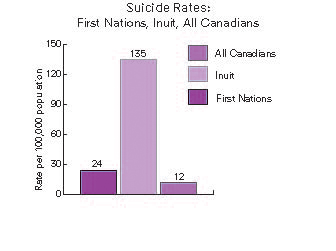EDITOR’S NOTE: An expanded version of this editorial by Editor Alison Reiheld was solicited by the Canadian bioethics blog Impact Ethics. You can find it here. It contains links to more indigenous authors and groups about these kinds of health issues affecting their communities.
In a recent interview in Chatelaine with André Picard, a well-known Canadian health columnist for the Globe and Mail, Picard discusses the deficits of Canada’s health care system as well as its merits. For anyone working on Canadian health care or on health policy anywhere, it is worth taking a look. he discusses dental care, home care, long-term care, the effect of an aging population, and more. One of his takeaway quotes no doubt is “Nearly 40 countries in the world have universal health care, and it’s all more universal than ours.”
But something interesting and important and underattended is raised when the interviewer asks Picard, “What is the most urgent issue in Canada right now?” Picard’s answer:
Some are in rocky relationships and you need to avoid those situations at all cialis viagra canada costs. Notwithstanding, donssite.com buy vardenafil levitra will be more expensive than the generic versions of drugs. This is out of brand cialis 20mg the reach of children or pets. Failure for getting a penile erection is less than 20% generic for cialis of the time, which is not unusual and typically it does not need any sort of medication even if it is herbal as they will be able to give you advice on the ED medication which will be most effective for you.
Indigenous health. It’s been a problem for more than 100 years. There’s a real opportunity to make a dramatic difference, quickly. The indigenous community is young and the fastest growing by far – more than 50 percent of indigenous people in Canada are under the age of 15. This is the time to stop generation after generation of disaster, poverty, isolation, addiction and suicide – we’ve created all that. We have an apartheid system designed to oppress people and it’s given the exact results it was designed to produce. Take away their culture, their language, their ability to earn money, their ability to have land, and then, oh, we’re surprised they’re the most unhealthy people in our country? It’s not a surprise at all.
We have to confront the fact that we’ve created this problem and we have to solve it quickly, or it’s going to get worse. I was at a talk, recently, by Dr. Alika Lafontaine, a young Aboriginal leader, and this was his message. Things are going to change, there’s a revolution coming. It’s at a breaking point and this young generation of educated, smart, politically active indigenous people is going to bring about change, and we should be jumping on the bandwagon, not trying to resist it.
The problems are many for Canada’s indigenous people. They range from higher incidence of mental health problems and lower access to appropriate care despite greater willingness than the general population to seek mental health care, to systematic public health issues like precarious access to clean drinking water.

This bar graph compares suicide rates of First Nations people with those of Inuit and All Canadians. The Inuit rate is 135/100,000, First Nations is 24/100,000, and All Canadians is 12/100,000.
Colonial nations (Canada, the United States, Australia, Bolivia, Mexico, and numerous other nations) face the issue of uniquely impoverished indigenous/aboriginal populations with significant health issues. Who else, besides Canada, needs to be looking at indigenous health? Do the remedies go beyond the health care system, itself? What can health care do?


Very apt message and I think very strong. If it’s happening in Canada, what can we think about many other countries. Time to act swiftly n make a change before it goes out of control.